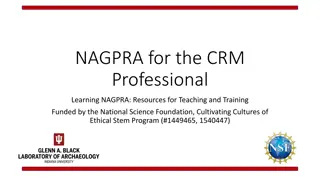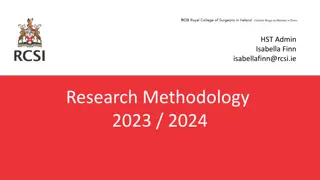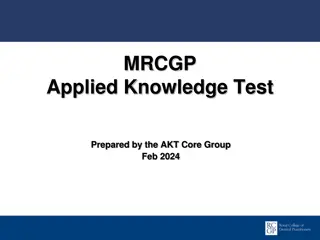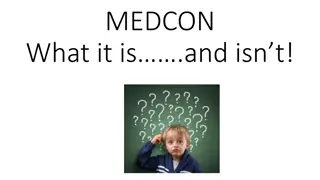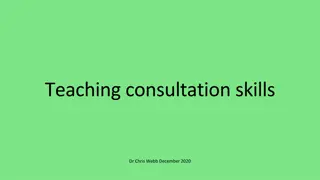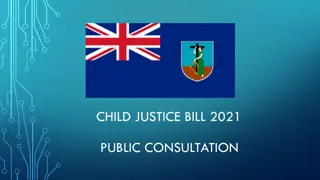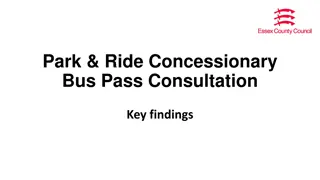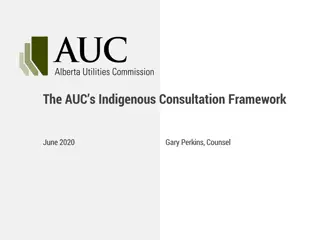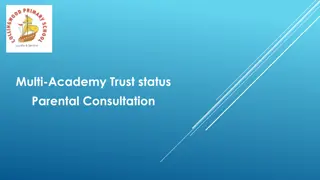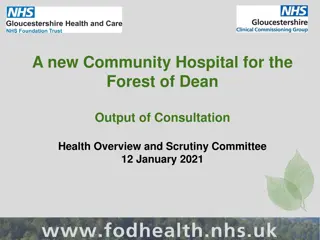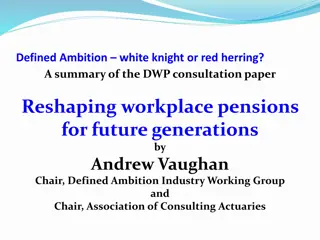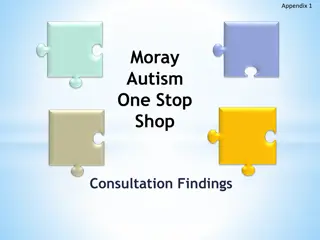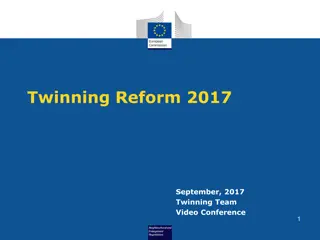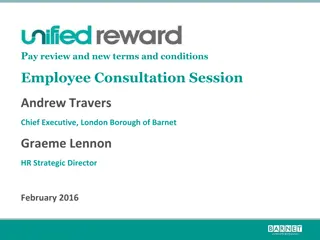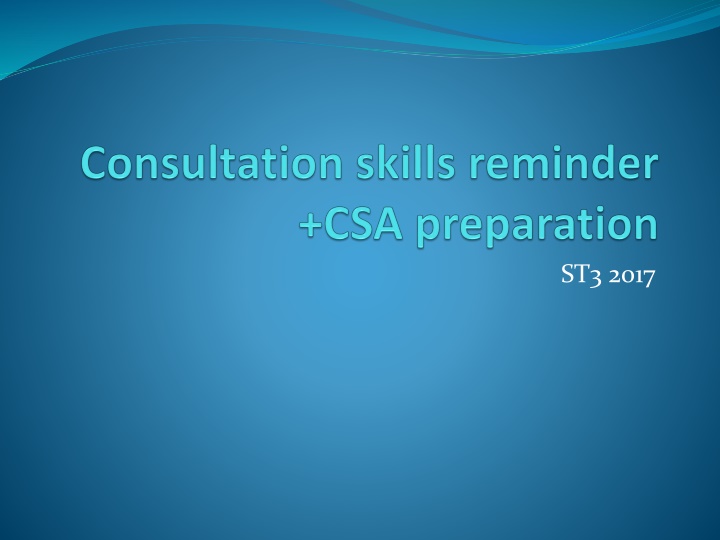
Effective Consultation Skills for Family Physicians: A Comprehensive Guide
Discover the key elements of patient-centred consultation skills for family physicians with insights from the Calgary-Cambridge Guide and expert scripts. Enhance your medical interview techniques for improved patient care and communication.
Download Presentation

Please find below an Image/Link to download the presentation.
The content on the website is provided AS IS for your information and personal use only. It may not be sold, licensed, or shared on other websites without obtaining consent from the author. If you encounter any issues during the download, it is possible that the publisher has removed the file from their server.
You are allowed to download the files provided on this website for personal or commercial use, subject to the condition that they are used lawfully. All files are the property of their respective owners.
The content on the website is provided AS IS for your information and personal use only. It may not be sold, licensed, or shared on other websites without obtaining consent from the author.
E N D
Presentation Transcript
You Tube Video Search on GP (family physician) patient centred consultation skills
ENHANCED CALGARY-CAMBRIDGE GUIDE TO THE MEDICAL INTERVIEW Kurtz SM, Silverman JD, Benson J and Draper J (2003) Marrying Content and Process in Clinical Method Teaching: Enhancing the Calgary-Cambridge Guides Academic Medicine 78(8):802-809 THE BASIC FRAMEWORK Initiating theSession Gathering information Providing Structure Building the relationship Physical Examination Explanation and planning Closing the Session
EXPANDED FRAMEWORK Initiating theSession preparation establishinginitial rapport identifying the reason(s) for the consultation Gathering information exploration of the patient s problems to discover the: Building the relationship Providing Structure biomedical perspective the patient s perspective using appropriate non-verbal behaviour background information - context making organisation overt Physical examination attending to flow developing rapport Explanation and planning involving the patient providing thecorrect amount and type of information aiding accurate recall and understanding achieving a shared understanding: incorporating the patient s illness framework planning: shared decision making Closing the Session ensuring appropriate point of closure forward planning
Consultation scripts Generally, we wouldn t recommend memorising scripts and phrases because a conversation between two people naturally flows when they respond each other. Scripts and phrases can make the consultation look artificial. However, it s useful to have an idea of the kinds of things to say. Please develop your own phrases and remember to contextualise them according to the specific situation you are in.
Some examples These ideas are taken from the Bradford VTS website and are written by Ramesh Mehay There are some scripts for all of the sections we ve discussed and they are definitely worth taking the time to read!! Also Damian Kenny s website www.damiankenny.co.uk has lots of suggestions too.
Damian Kennys Consultation Navigation School Collect all relevant information first, and only then cross the bridge to start discussing management
Roger Neighbour Update PATIENT DOCTOR SHARE
Each case in the CSA is marked in three domains and each domain contributes to an overall score. You must aim to score as many points as possible in each domain in each case. The pass mark varies with each exam and each case as it is peer referenced. Possible scores: Clear fail, Marginal fail, Marginal pass, Clear pass
Domain 1- Data gathering and assessment skills This means history, examination and the use of medical equipment; Interview should be focussed and relevant to the complaint History should be sufficient to reach a diagnosis and exclude likely serious possibilities Physical examination should be done with courtesy and efficiency Information from the records is obtained and made use of
Domain 2 Clinical management skills Explaining the problem/diagnosis Offering effective and safe treatment Using investigation, prescription and referral appropriately Recognition of and response to urgency Managing risk and co-morbidity Encouraging health promotion Arranging appropriate follow up
Domain 3 Interpersonal skills Attitude, empathy and good communication skills are all being considered Establishing rapport Showing sensitivity and empathy Exploring the patient s concerns Listening and understanding Using appropriate language Negotiating options for treatment Respecting patient autonomy
Geoffs three balls!!! Clinical Information/ Red flags etc. Ideas, Concerns, Expectations Psychosocial information Shared Management Check Understanding Safety Net
Reasons candidates fail the CSA Unstructured of poorly structured consultations- e.g. immediately making a diagnosis. Not listening to the patient or picking up cues about their underlying concerns. Asking set questions and not responding to the answer. Insufficient consideration of the differential diagnoses. Failure to exclude red flag issues.
Reasons candidates fail the CSA Insufficient evidence of a coherent management plan Inadequate sharing of a realistic range of management options Poor explanation to patients Little attempt at seeking patient understanding Poor time management Lack of an ability to prioritise
Reasons candidates fail the CSA Poor understanding of the values a patient brings to the consultation Poor housekeeping - problems in one station affecting subsequent performance.
CSA case- deaf person with hypertension Data gathering and interpretation fail 1mark Limited exploration of psychosocial aspects- work girlfriend, life stressors, check on exercise and dietary changes. Didn t check alcohol intake. Clinical management pass 2marks Discussion about management occurs early in the consultation- usually a bad sign- reflects the Dr not getting enough info. to make the options valid. Only one option given- which may seem appropriate but .
CSA case- deaf person with hypertension Interpersonal skills If a patient doesn t respond to a verbal come in the Dr should open the door themselves The Dr doesn t check the appropriate method of communication- assumes sign language. Dr talks quickly and looks down a lot Misses cues- both verbal and non verbal I don t like tablets- verbal Patient shakes his head at the proposed management plan- non verbal. Dr takes a parental approach without taking adequate consideration of the patient s concerns. fail 1 mark
CSA mock marking How we re going to do this today Identify positive and negative behaviours Try using the phrases that were actually said- this would be descriptive feedback Avoid generalist statements eg- you were blunt , you we re patient centred etc. Make comments suggestions and alternative ideas. Feedback from trainee first, group members next and TPD if further comments to be made. TPDs act as patients and will collate feedback from the group.
Practice Case Jane Steele, a 34y old secretary and mother of 2 young children consults as she has become acutely ill with arthralgia, very stiff and swollen hand and knee joints, and malaise over the last 5 days. She has a mild rash and low grade fever. She is concerned that she is developing rheumatoid arthritis like an aunt who has severe joint deformities.
Domains: DATA GATHERING, TECHNICAL AND ASSESSMENT SKILLS Need: Good targeted history taking Past medical history Family history (aunt s RA, childrens recent slapped cheek syndrome) Occupation and social history Appropriate examination of joints, temperature, rash Arranges blood tests: ESR CRP FBC autoantibodies and Rh Factor, poss antiCCP antibodies and viral titres CLINICAL MANAGEMENT SKILLS Reaches the diagnosis of probable viral illness and explains likely course of illness, investigations and what will happen if doesn t settle rapidly Offers anti-inflammatories INTERPERSONAL SKILLS Explores ICE sensitively and reassures appropriately while explaining uncertainty Maintains an optimistic reassuring demeanor Explains clearly rationale for investigations and management Explains about possible side effects of NSAIDs Arranges follow up in near future


